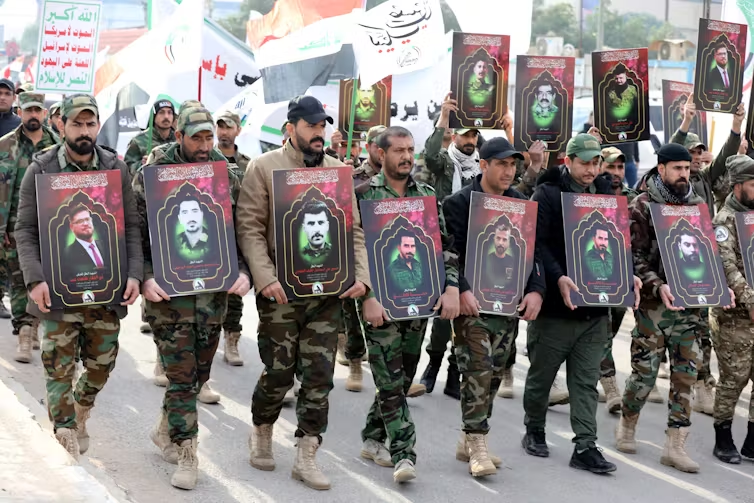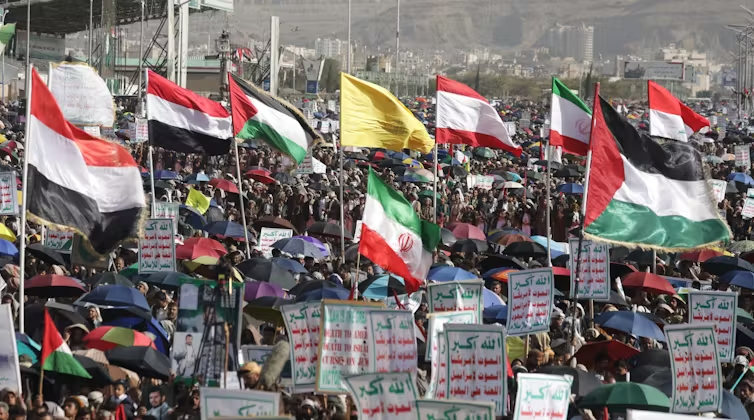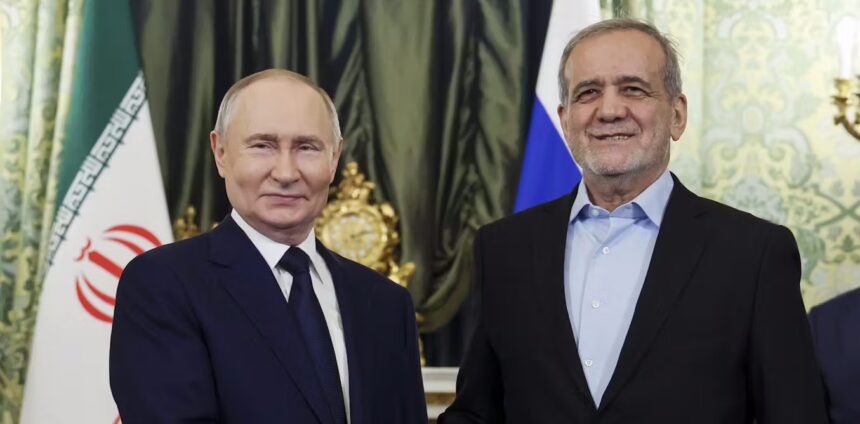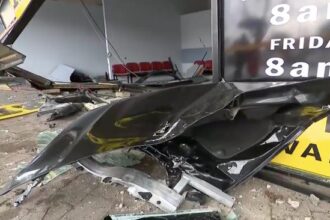Iran Faces Mounting Isolation Amid Rising Global Tensions
As geopolitical pressure mounts on Iran, the world is asking: who will stand by the Islamic Republic if conflict erupts with Israel and the United States?
Western Powers Harden Their Stance
With US President Donald Trump increasing threats against Iran’s nuclear program and labelling Iran’s Supreme Leader “an easy target,” diplomatic tensions have intensified. Global powers including Germany, Canada, the UK, and Australia have toughened their stance, demanding Iran dismantle its nuclear activities entirely. Yet, while sanctions and rhetoric escalate, the critical question remains — will Iran face this threat alone, or does it have dependable allies willing to act?
The Axis of Resistance: Iran’s Shadow Shield
Iran’s “axis of resistance” has long served as its shadow defense strategy. This loosely aligned network includes Hezbollah in Lebanon, the Popular Mobilisation Forces (PMF) in Iraq, the Houthi movement in Yemen, and Hamas in Gaza. Though varying in their loyalty and capacity, these paramilitary groups have historically acted as regional proxies, shielding Iran from direct conflict by deterring adversaries through dispersed resistance.
Tehran’s Diminishing Regional Clout
In recent years, however, Israel has aggressively dismantled large portions of this axis. Hezbollah’s arsenal has been largely neutralized, and its leadership suffered a blow with the assassination of Hassan Nasrallah. In Syria, the collapse of Bashar al-Assad’s regime, previously propped up by Iran, has further eroded Tehran’s regional stronghold.
Remaining Regional Allies and Their Capabilities
Despite these losses, Iran retains influence in Iraq and Yemen. The PMF, which commands nearly 200,000 fighters, remains operational and ideologically aligned with Tehran. The Houthi movement, with comparable numbers, continues to assert control in Yemen. Should Iran face an existential threat, religious and ideological solidarity may catalyze their mobilization, rapidly expanding the war’s theater across the Middle East.


A Volatile Response If the US Intervenes
One senior PMF figure warned, “If America dares to intervene in the war, we will directly target its interests and military bases spread across the region without hesitation.” Such a stance underlines the latent volatility, especially with 2,500 US troops still stationed in Iraq. Moreover, Iran may resort to ballistic missile strikes on Persian Gulf bases or disrupt oil flow by shutting the Strait of Hormuz, a chokepoint for 20% of the world’s crude supply.
Pakistan: A Cautious Ally With Nuclear Muscle
Iran also continues to nurture strategic relations with Pakistan, the only Islamic nuclear power. While Pakistan’s leaders stop short of promising military support, their rhetoric is undeniably supportive. Prime Minister Shehbaz Sharif has pledged “unwavering solidarity,” while Defense Minister Khawaja Asif warned Israel would “think many times before taking on Pakistan.”
Iran Seeks Diplomatic Cover Across the Muslim World
This cautious endorsement is significant. Pakistan seeks to mediate tensions while strengthening Islamic unity, urging countries like China to lead de-escalation efforts. Meanwhile, Iran’s diplomatic overtures to Saudi Arabia, Egypt, and even adversarial Gulf states have improved regional standing. Though these Sunni-majority states may refrain from offering material support, nearly two dozen Muslim-majority nations have condemned Israeli aggression, offering Iran rhetorical and moral backing.
Russia and China: Strategic But Limited Support
Iran’s strongest global supporters remain Russia and China. Both nations oppose direct conflict with the US but have a history of shielding Iran from UN sanctions. Their geopolitical stakes in Iran’s stability, via oil, trade, and strategic balance, are enormous. Iran’s “Look East” policy has deepened economic ties with both powers.
Strategic Calculations May Prevent Direct Intervention
However, history suggests restraint. Russia stood aside when Assad fell, choosing not to engage further as its war in Ukraine demands priority. Likewise, China’s support is strategic, not military. Its engagement in the Middle East is economic; it avoids entanglements that could jeopardize relations with the West.
Could Iran Stand Alone in a Future War?
Theoretically, both powers could intervene if Washington pursued regime change in Tehran. But for now, they appear unlikely to escalate beyond diplomatic and economic pressure. Iran, though surrounded by sympathetic forces, may find itself strategically isolated should war erupt.
The Stakes of Strategic Defiance
As the countdown to potential military action continues, unanswered questions loom: What specific guarantees does Iran hold from its allies? Will regional militias unify or act independently? Will Russia and China recalibrate their strategies if war spreads? And, if Iran retaliates pre-emptively, will that trigger broader conflict or seal its isolation?
Iran’s Critical Choice in a Shifting World Order
The global chessboard is being reset in real-time. For Iran, the choice between strategic patience and military defiance may shape the future of the Middle East.






